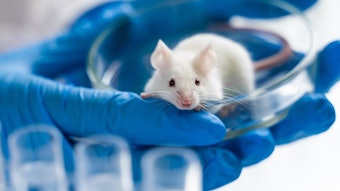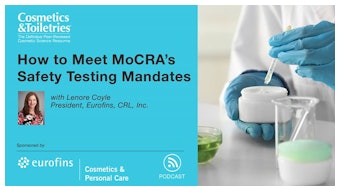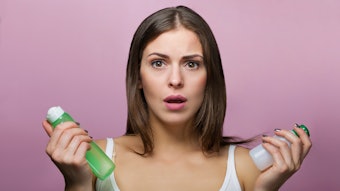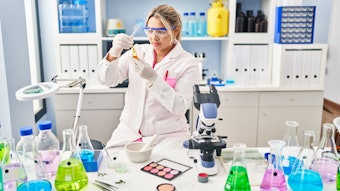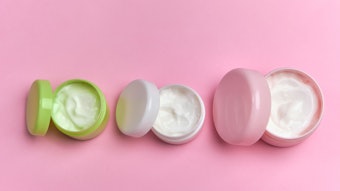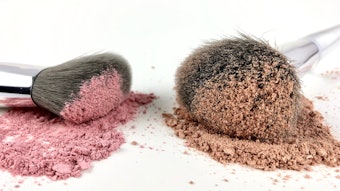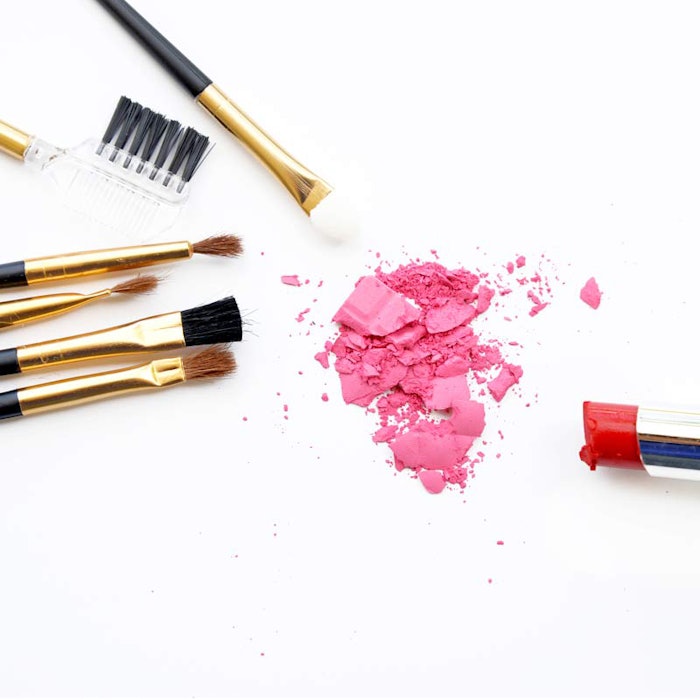
The Personal Care Products Council (PCPC) has taken issue with the Breast Cancer Action’s recent statement which alleged that products in "Look Good Feel Better" cosmetic kits offered to women living with breast cancer, and organized under the PCPC's philanthropic efforts, contain chemicals linked to increased cancer risk.
“As it is built on false information, we are compelled to set the record straight on behalf of the millions of women, men and their families who are fighting this deadly disease," said Lezlee Westine, president and CEO of Personal Care Products Council.
“Cosmetic and personal care products companies have a longstanding commitment to the safety of their products. Our industry is guided by the core value to do the right thing based on the best available science when addressing product safety. We share a common interest with the millions of families who use our products every day providing them with the safest, most innovative and effective products possible. We are among the safest industries regulated by the U.S. Food and Drug Administration (FDA) and we take false allegations about the safety of our products very seriously," said Westine.
Among the ingredients the Breast Cancer Action cited as concerns were parabens, Teflon, and formaldehyde releasers. The paraben controversy has been said to mostly originate from a study by Dabre et al. published in 2004 that showed the presence of parabens in the breast tissue of women who had diagnoses of breast cancer. However, a number of scientists disagree with this study and assertion, citing the myth and the reality of parabens. According to a report, Routledge et al. found no oestrogenic activity for methylparaben in vivo in a 1998 study, and the activity of butylparaben was found to be 100,000 times weaker than oestradiol, the benchmark for measuring oestrogenic activity. In addition, the PCPC has indicated the safety of ingredients including formaldehydes used in cosmetics and personal care. Also, experts have reiterated that preservatives are needed in formulations to stop microbes from causing disease (Read more in C&T about Free Formaldehyde Preservative Stability in Personal Care, first in water and then in personal care formulations).
"As an innovative industry, we use the best science available to develop products that consumers trust and enjoy each day," said Westine. "We will continue to follow the science as we create new products to ensure the ongoing safety of our consumers.”
Further, the PCPC said studies have shown that support programs like "Look Good Feel Better," which provide emotional support like offering gifts of cosmetics and a cosmetologist to give women makeovers, have a significant impact on a patient's adherence and outlook to treatment.
“Our industry could not be more proud to support Look Good Feel Better, which has served more than 1.7 million women worldwide and started with that one patient, 26 years ago," said Westine. "Our commitment to women with cancer doesn’t live just within Look Good Feel Better. Our companies support many programs for cancer patients as well as funding for research. Overall, the cosmetics industry donates approximately $134 million to charitable causes with a substantial contribution to cancer awareness and research," Westine added.
